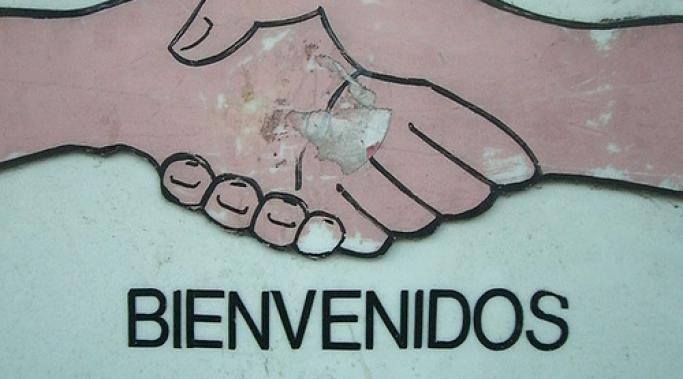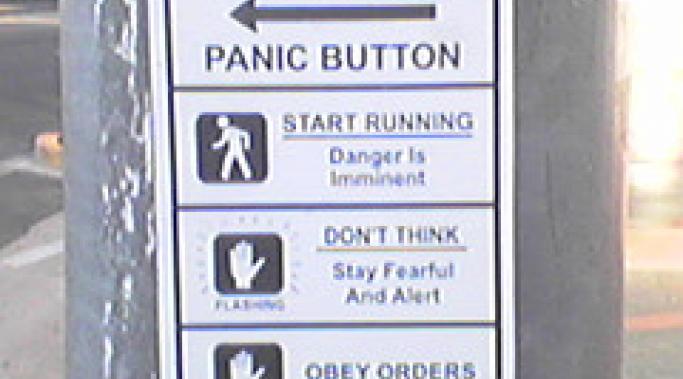Blogs
I write about Dissociative Identity Disorder in part because I'm disturbed by the sheer volume of false and misleading information about DID. It bothers me that an overwhelming number of online resources are teeming with misconceptions so profound that the end result is a definition of the disorder that further shrouds it in mystery and controversy. Not to mention the fact that nobody seems able to explain it without relying on a misnomer, Multiple Personality Disorder, to do so. It took me a long time to wade through all the jargon and arrive at a definition of Dissociative Identity Disorder that accurately explains my experience of it.
The language of love may have been present at the beginning of my abusive marriage. Honestly, I don't remember. The language of abuse pulled me into negative thinking about my ex-husband, myself, our family, and all dreams I once held dear to my heart.
Over time, the words we used as a couple became harsh and either black or white - there was no in between and definitely no love (Verbal Abuse Turns Love Into a Tool of Abuse). Every situation became a problem to solve (his way) and every dream disappeared (because I believed him when he said I didn't live in reality). The language of love ceased to exist.
The issue is that whilst my internal anxiety alarm* is going off like a Trade Unionist in Wisconsin any other feelings I might have are being drowned out. (*Part I)
Talking about a revolution. Stop anxiety
For all that I may believe in the validity of my anxiety, it comes with far too many unreasonable expectations. I cannot meet them all, which really just makes it a loud, obnoxious sidekick I could do without.
I can't evict my anxiety disorder (chronic PTSD), unfortunately. So I've had to find ways ways to fool it: to get my mind thinking as I may not always believe, or to switch racing, anxious thoughts and frustrations onto a different track.
Ah, spring. The days get longer, the nights get shorter. Warm breezes threaten the remaining snow drifts from winter's storms. Almost as soon as the groundhog sees its shadow, swimsuits and light jackets appear in stores. Valentine's candy is replaced by Easter candy and all the bunnies, green grass, and baby chicks you can handle. Even if you live under a rock and miss all these signs, you'll know spring is on its way when you call your child's therapist and find her booked through mid-July. It seems spring not only brings out the birds, bunnies and chocolate eggs with gooey filling. It also brings out the crazy.
My brain is a finite resource. Well, the grey, gooey thing in the skull is finite for everyone. But my brain’s ability to think reasonably is a finite resource. When I write it thinks, thinks, thinks, and then there is a dramatic thud.
My brain then stops thinking.
ADHD is a genetic, neurobiological disorder characterized by disregulation of attention, not an inability to pay attention as is commonly thought. In other words, adults and children living with ADHD are able to focus, but they cannot control when they focus.
Whenever a bunch of parents congregate with their children, one thing is inevitable: a little bit of competition flares up amongst the sticky sippy cups and cookie crumbs. Now, I’m not a competitive person by nature—you could run circles around me on the track field or beat me in a game of Scrabble, and it wouldn’t faze or bother me a bit. But when it comes to my daughter, my own flesh and blood, I can’t help by compare her development to other toddlers her age.
the concepts of an Authoritarian God and a Benevolent God have a powerful impact on the severity of symptoms of borderline personality disorder (BPD). ... All I know is that under the Authoritarian God I had no hope, and under the Benevolent God I do. What about you?
Managing the self-sabotaging behaviors that make life with Dissociative Identity Disorder so difficult doesn't mean getting rid of them. It means learning to live with them; recognizing and investing in the opportunities for growth inherent in self-sabotage. For me, that requires (1) acceptance of those behaviors, no matter how repugnant, (2) honest communication devoid of the power struggle that characterizes instinctual responses to self-sabotage, and (3) welcoming compromises that allow me to keep moving. When I discovered an alter was blocking internal communication, I was surprised to learn that all three of those things are possible. But it was the compromise that amazed me the most, and ultimately changed my life.
People who experience anxiety often get stuck in the cycle of avoidance, leaving them feeling trapped, like they can't do anything about their anxiety. For want of better options, they hide - from it, and in many cases, from the world.
Having an anxiety disorder is like having a hateful, hyperactive internal alarm system; It only detects the judge, not the jury. The verdict is practically irrelevant: you already know it's guilty. Like predictive text for panic disorders.
That alarm doesn't care about the guy flirting with you, or the reassuring smile the waitress gives.
What sensations, ideas, emotions, experiences make up anxiety?







